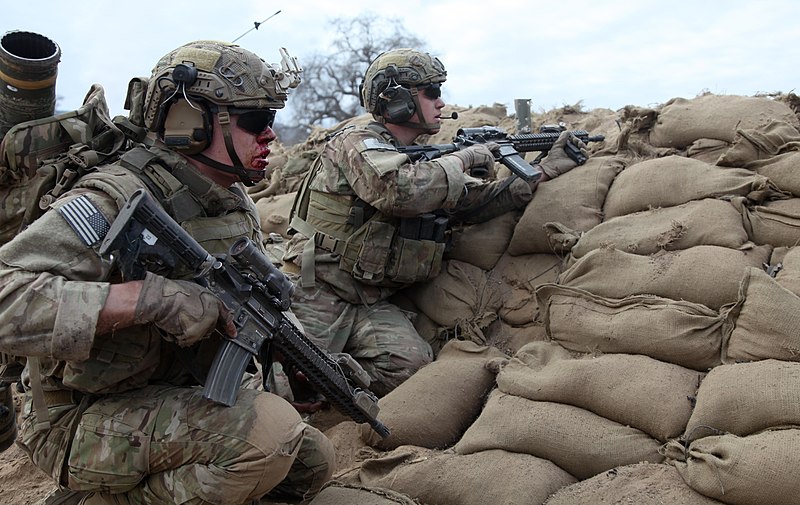Words like these often flow from a place without fore- or afterthought. They exist only at the moment they flow from my brain to my fingers or throat. They are expressed at that moment alone or they are lost. For me, these words expressed can only be described as some form of emotion I dare not dwell upon for too long. I have spent my life compartmentalizing those around me. The words I express in this crude poetic format are some form of possession upon my body. They flow from a place I cannot explain. They flow from someplace that goes against who I am, a man who does not share himself with the world. I am a man who shares himself only with those closest to me. To write these words, knowing they are to be shared with others, is difficult beyond comprehension. I share only the hope that my words might strip away the feelings of isolation of, or create understanding in, just a single person. If all my words written can achieve just that, only once, I might justify the great risk of myself sharing them.
I wish I could fully express how these words, and all of the words I have chosen to share, bring such great risk upon myself. Of all subjects, this one would be disingenuous not to share, but one that brings the most risk. I have spent so much time avoiding the elephant in the room everywhere I go. After leaving Regiment, it lingered with every question asked of me about my time in the service. I saw the question upon their lips. It lingered in their eyes. It was the question they so desperately wanted to ask more than any other, yet the answer they feared the most. When I became a police officer, the preface of the question was crushed more than once, but the question itself was never asked. In so many ways it was answered, but in a way that one must consciously suss out.
The preface… Have I ever taken the life of another? The question is one the world shies away from. It is the root of war. It is an often-unfortunate result of police action. It is the question the world wants to know but is afraid to ask. It is the question often asked only by the youngest of children, before society instills in them the guilt of such questions. A Vietnam veteran friend of mine once answered it in a surprising way, given the fact he hated war, was not a combat MOS, and said he never hoped to see combat ever again.
Having found himself surrounded during the Tet Offensive, he said, “People are afraid to ask what it is like to kill someone because they are afraid of the answer. It is exceptionally easy; we have been doing it for millennia. What makes it hard for most people is society.” I have to interject at this moment and say, before I give you my answer, taking life is a complex issue involving the intersection of both complex humans and situations. Killing a small child following the orders of a piece of shit adult willing to sacrifice their child is not the same as killing a willing participant. I know people who are haunted by taking life only once, others who have taken countless lives without a real care, and yet others, who have taken countless lives, haunted only by a few. What it is like to take a life does not exist as a single answer. Being burdened by taking a life does not make one weak, but not being burdened does not make one broken.
What has it been like for me to have taken human life? I could care less. The world is a series of complex intersections of interactions, chance, decisions, and experiences. Second, by second, they play out every day. In every instance I have taken a life, I have reacted to the actions of others. I have taken life only to preserve other lives threatened. In those moments, I reacted to action. I have not taken a single life that has brought me a moment of regret, remorse, or interrupted sleep. I have taken life only when necessary and taken every action possible to preserve and protect every life before me. I have risked my life to save the life of others more times than I care to count. I cannot control the actions of others, a hard-learned life lesson. I live by the teachings of the Stoics. I can only react to the actions of others, I cannot control the past, and all I can do is move forward.
A few weeks after my first shooting as a cop, I received a call from someone involved. They asked me, “Should I feel guilty for what we did?” I asked him why he was asking. He said it was because everyone was making it out to be a big deal and that he should act like he feels guilty, or upset, or something… I have called this, “forced guilt.” I took due care to tease out his concerns, ensuring I did not project my personal feelings upon him. The truth is, taking life can haunt a lot of people, for good reason. I understand the complexities, I have talked guns out of mouths over such topics, and I will continue to answer my phone at all hours of the day and night for such struggles. I want to express that society has a way of projecting its feelings upon many of us in a way that places upon us a guilt that would not otherwise exist.
I have watched as my callous words have made others uncomfortable, even among fellow officers. It is not everyone, but a larger subset than I would have thought. Others, however, have found comfort in the shared callousness of it all. By remaining silent, the world forces upon so many of us a guilt ill-deserved. It forces those struggling to bury it, and it eats them from the inside. It forces silence among those who understand the most. The social discomfort, disgust, and contempt force those of us with such a unique yet ubiquitous experience to carry it alone. It forces us to fear the topic. It forces us to stand among one another, scared to share that which would free us.

This first appeared in The Havok Journal on February 7, 2023.
Jake Smith is a law enforcement officer and former Army Ranger with four deployments to Afghanistan.
As the Voice of the Veteran Community, The Havok Journal seeks to publish a variety of perspectives on a number of sensitive subjects. Unless specifically noted otherwise, nothing we publish is an official point of view of The Havok Journal or any part of the U.S. government.
Buy Me A Coffee
The Havok Journal seeks to serve as a voice of the Veteran and First Responder communities through a focus on current affairs and articles of interest to the public in general, and the veteran community in particular. We strive to offer timely, current, and informative content, with the occasional piece focused on entertainment. We are continually expanding and striving to improve the readers’ experience.
© 2024 The Havok Journal
The Havok Journal welcomes re-posting of our original content as long as it is done in compliance with our Terms of Use.



